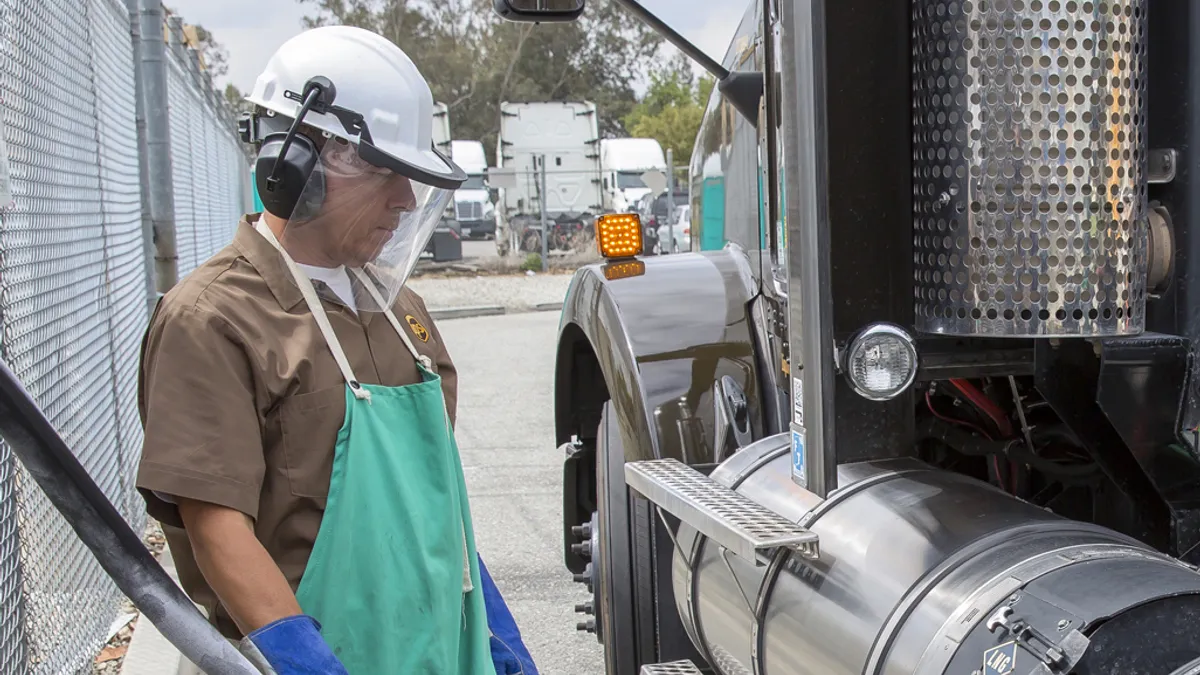Dive Brief:
- UPS will invest over $90 million to make its transportation infrastructure more reliant on compressed natural gas (CNG) and decrease its emissions, the company reported Wednesday.
- The company will build six more CNG fueling stations, purchase 390 new CNG tractors and terminal trucks alongside 50 more liquefied natural gas (LNG) vehicles.
- The company's studies show replacing its fleet with natural gas vehicles reduces emissions 6-11%. Last year, UPS invested another $100 million to expand its CNG fueling capacity and currently operates 31 stations in 15 states while operating the vehicles in 38 states and 4 countries.
- 2016 also saw the use of approximately 61 million gallons of natural gas, 4.6 million gallons of which were renewable, allowing the company to cut CO2 emissions by 100,000 metric tons.
Dive Insight:
UPS' drive for sustainability is among the most prevalent in the industry, with the company consistently boasting investments in green technology or carbon-emission reduction projects.
In three of the past four months, Supply Chain Dive has reported on a new initiative to help supply chains be more sustainable not just in B2B transportation, but also in last-mile delivery, at its facilities (solar panels) and with its packaging services. Such efforts are laudable, although not always implemented without opposition.
One initiative by UPS in Kentucky sought to deliver packages by golf cart rather than delivery truck, perhaps in an effort ot reduce emissions or increase efficiency given small roads. Yet, the efforts would require the state to allow golf carts to drive alongside other vehicles on non-residential roads. As a result, the legislature pushed forward a bill to allow UPS drivers to do just that, only to face opposition by the Teamsters union.
The Teamsters argue the initiative and legislation places drivers in danger due to an ongoing vehicle presence with which the carts would be forced to share the roads. In addition, they argue allowing "helpers" who earn a lower wage, rather than regular UPS drivers, to drive the carts would cause UPS drivers to be supplanted by golf-cart drivers.
The Teamsters' opposition may be an isolated incident, but shows just one of the various industry stakeholders who may raise their voice to slow implementation of a fully renewable fleet. The renewable market may be booming, but as the practice becomes more prevalent, vendors of traditional trucks and vehicles may also protest.
Regardless, UPS and its fellow last-mile logistics providers appear to be at the vanguard of such initiatives, pursuing sustainability goals voluntarily and despite opposition.













